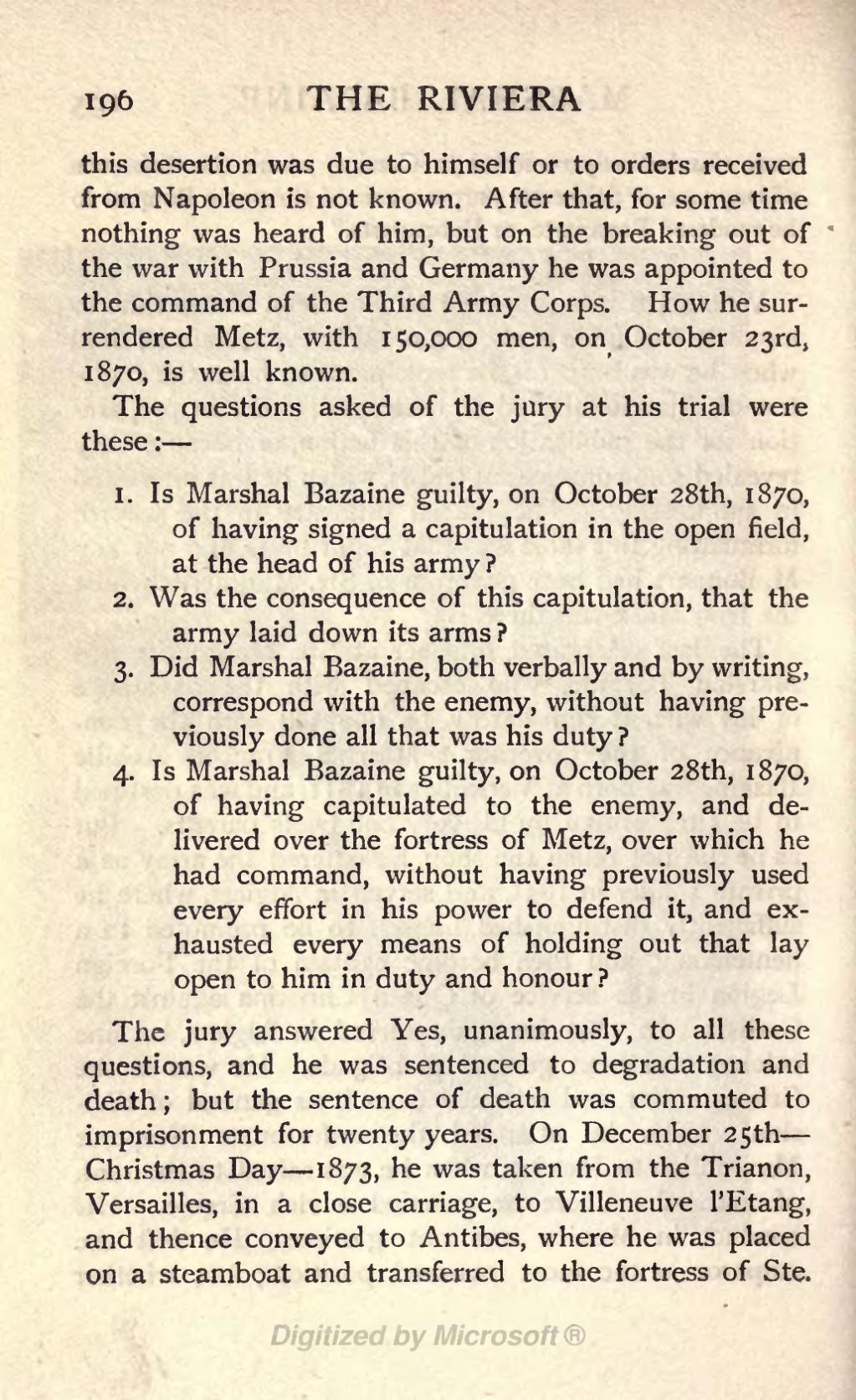this desertion was due to himself or to orders received from Napoleon is not known. After that, for some time nothing was heard of him, but on the breaking out of the war with Prussia and Germany he was appointed to the command of the Third Army Corps. How he surrendered Metz, with 150,000 men, on October 23rd, 1870, is well known.
The questions asked of the jury at his trial were these:—
1. Is Marshal Bazaine guilty, on October 28th, 1870, of having signed a capitulation in the open field, at the head of his army?
2. Was the consequence of this capitulation, that the army laid down its arms?
3. Did Marshal Bazaine, both verbally and by writing, correspond with the enemy, without having previously done all that was his duty?
4. Is Marshal Bazaine guilty, on October 28th, 1870, of having capitulated to the enemy, and delivered over the fortress of Metz, over which he had command, without having previously used every effort in his power to defend it, and exhausted every means of holding out that lay open to him in duty and honour?
The jury answered Yes, unanimously, to all these questions, and he was sentenced to degradation and death; but the sentence of death was commuted to imprisonment for twenty years. On December 25th—Christmas Day—1873, he was taken from the Trianon, Versailles, in a close carriage, to Villeneuve l’Etang, and thence conveyed to Antibes, where he was placed on a steamboat and transferred to the fortress of Ste.
